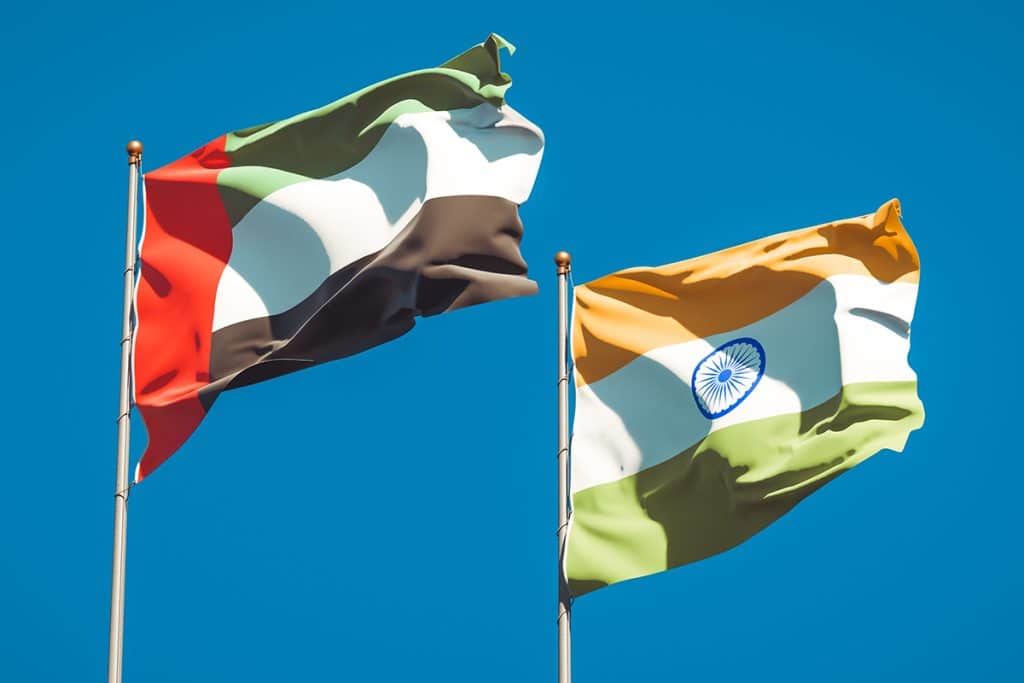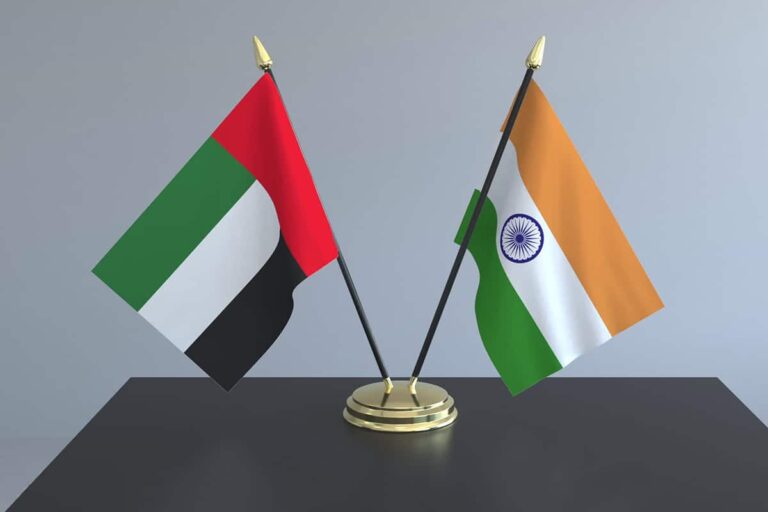India and the UAE are reaping record results from CEPA, with non-oil trade soaring 33.9 per cent to $37.6bn in 2025.
A new research roadmap has been unveiled as both nations push toward their $100bn trade target by 2030.
In a landmark step to deepen the India–UAE economic partnership, senior ministers and business leaders convened high-level meetings in Dubai and Abu Dhabi to assess progress under the Comprehensive Economic Partnership Agreement (CEPA) and chart its future trajectory.
UAE-India trade
The UAE–India Business Council – UAE Chapter (UIBC-UC) hosted a closed-door session in Dubai attended by Dr. Thani bin Ahmed Al Zeyoudi, Minister of Foreign Trade, and Piyush Goyal, Commerce and Industry Minister, Government of India.
Discussions centred on CEPA’s transformative impact since coming into force in May 2022.
Non-oil bilateral trade between the two nations reached $37.6bn in the first half of 2025, a 33.9 per cent increase over the same period in 2024.
The strong momentum positions the partnership firmly on track to meet its shared goal of $100bn by 2030.
Dr. Al Zeyoudi said: “Since its entry into force in May 2022, the agreement has marked a qualitative leap in trade and investment ties, clearly reflected in the growth rates of bilateral trade and investment flows.
“The upward trajectory in non-oil trade underscores that the UAE–India CEPA is on track to achieve the shared goal of reaching $100bn by 2030.”

He added that the positive results reflect the joint commitment of both sides, reinforced by high-level visits and meetings. “The most recent was the 13th meeting of the UAE–India High Level Joint Task Force, held today in Abu Dhabi under the chairmanship of Sheikh Hamed bin Zayed Al Nahyan, Managing Director of Abu Dhabi Investment Authority, to further expand cooperation under the CEPA and explore ways to enhance and develop it for the mutual benefit of both economies.”
Beyond trade volumes, CEPA has catalysed new growth in gems and jewellery, food processing, telecom, green energy, and digital services, while also fostering collaboration in emerging sectors such as artificial intelligence, space technology, sustainability, and financial integration.
Building on this momentum, UIBC-UC launched a major research paper, “Strength in Synergy: Unlocking India-UAE CEPA Global Potential,” during the Dubai meeting.
The paper highlights how CEPA has evolved from a bilateral trade accord into a cornerstone of strategic cooperation.
“CEPA is no longer just a trade pact, it’s a blueprint for the future,” said Faizal Kottikollon, Chairman of UIBC-UC, in the report’s foreword. “This partnership exemplifies how political will, shared vision, and aligned strengths can co-create a model for cross-regional cooperation, innovation, and global leadership.”
The research outlines pathways for deeper collaboration in clean energy, education, research ecosystems, digital integration, and human capital development.
It also frames CEPA as a global model of resilient, innovation-led cooperation, aligned with both nations’ roles in multilateral groupings such as BRICS, the G20, and the India-Middle East-Europe Economic Corridor (IMEEC).
Dr. Al Zeyoudi stressed that the UAE–India economic partnership is not merely a trade agreement but “a platform for achieving shared development goals, stimulating economic growth, accelerating reciprocal investment flows, and creating opportunities for business communities in both countries to expand and prosper.”


